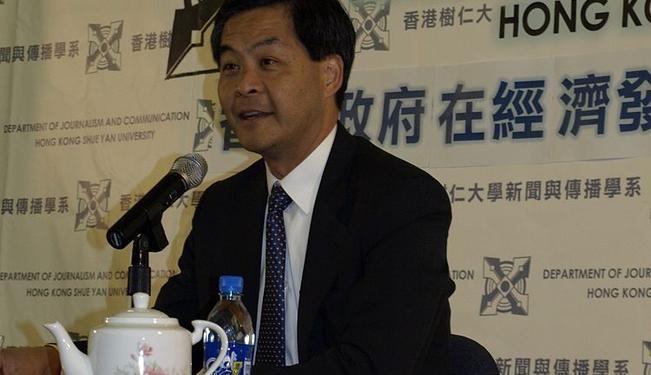The election of Leung Chun-ying as Chief Executive of Hong Kong raises questions about the electoral process and Beijing’s grip on the city.
The position of Hong Kong Chief Executive is not one that has covered itself in glory since it replaced the erstwhile British colonial-era position of Governor in 1997. Marked either by inept (Tung Chee-wah) or underwhelming (Donald Tsang) men, this disappointing trend is set to continue following last month’s election, in which Leung Chun-ying beat Henry Tang.
The trouble is that what happened on March 25 was not a real election. In a city of 7mn, only 1,193 citizens were allowed to vote. This small group is composed exclusively of Hong Kong's elite, all of whom have been furiously vetted by the Chinese government in Beijing before being presented with the right to vote. Even then, confusion reigned amongst this group over who to vote for. For months Mr. Tang, a member of a wealthy textiles family and holder of previous high-profile government posts, had been the presumed Chief Executive in waiting. But as he campaigned, allegations — first about infidelity and then about illegal additions to his private properties — destroyed his chances as public opinion soured on him.
By the final run-up to Sunday, the Beijing-sponsored press in Hong Kong had begun giving Mr. Leung more prominent coverage. He duly won, picking up 689 of the votes, compared to Mr. Tang's 285 and Albert Ho's 76. But now questions are being asked about Mr. Leung. When he first emerged he was seen as acceptable by the public, but has since been unable to shake off accusations of inscrutability, slyness, and secret allegiance to the Chinese Communist Party (Under Hong Kong law the Chief Executive must be non-partisan). Local media has begun calling him "The Wolf", and Mr. Leung certainly did not help his image when he promptly paid a 90-minute visit to the city's Beijing Liaison Office after winning the election.
Beijing has promised that Mr. Leung will be the last Chief Executive to be elected in such a fashion, as universal suffrage will be introduced in Hong Kong for the next cycle in 2017. That may ease some of the tension from the public over seeing the whole process being conducted over their heads. It will be no silver bullet though: In a mock election organized by the University of Hong Kong, 56% of participants handed in a blank ballot. There is quite simply a deficit of trust and understanding between the people of Hong Kong and their would-be rulers, most of which is to due growing inequalities in society and the formalization of insular cliques between government and business sectors.
This is an issue that cannot be resolved simply by slotting one man out for another, and the results of the mock election signify this. The increasing level of collusion amongst the elite is not met by alarm in the mainland where the rule of law is not as entrenched as it is in Hong Kong. But respect for this concept is one of the city's great signature features, and when repairing the process of selecting Hong Kong's Chief Executive, policymakers in both Beijing and Hong Kong must keep this in mind.
The views expressed in this article are the author's own and do not necessarily reflect Fair Observer’s editorial policy.
Support Fair Observer
We rely on your support for our independence, diversity and quality.
For more than 10 years, Fair Observer has been free, fair and independent. No billionaire owns us, no advertisers control us. We are a reader-supported nonprofit. Unlike many other publications, we keep our content free for readers regardless of where they live or whether they can afford to pay. We have no paywalls and no ads.
In the post-truth era of fake news, echo chambers and filter bubbles, we publish a plurality of perspectives from around the world. Anyone can publish with us, but everyone goes through a rigorous editorial process. So, you get fact-checked, well-reasoned content instead of noise.
We publish 2,500+ voices from 90+ countries. We also conduct education and training programs
on subjects ranging from digital media and journalism to writing and critical thinking. This
doesn’t come cheap. Servers, editors, trainers and web developers cost
money.
Please consider supporting us on a regular basis as a recurring donor or a
sustaining member.
Will you support FO’s journalism?
We rely on your support for our independence, diversity and quality.







Comment